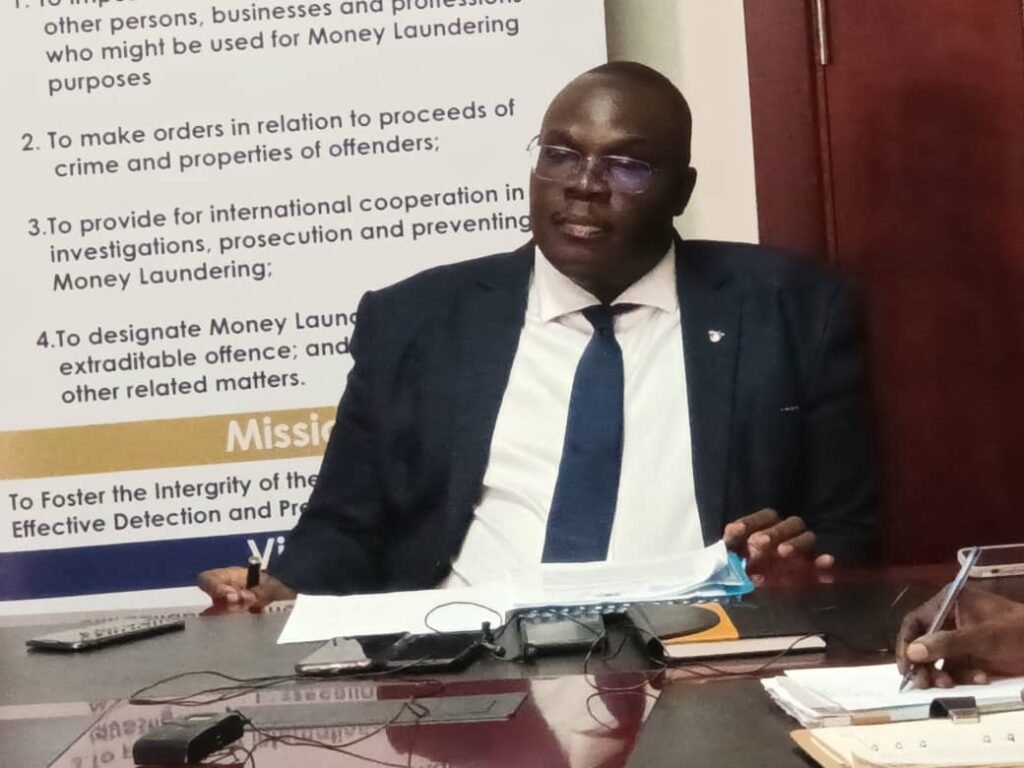The Financial Intelligence Authority (FIA) has cleared the air on allegations that Uganda been has been put on the black list by the Financial Action Task Force (FATF) over money laundering and terrorism financing
The FATF is an inter-governmental policymaking body whose purpose is to establish international standards, and to develop and promote policies, both at national and international levels, to combat money laundering and the terrorism financing. It was formed in 1989 to set out measures to be taken in the fight against money laundering.
In 2020, it was determined that Uganda had not done enough to strengthen it’s systems to combat the vices, and as a result, the country was placed on the grey list.
A total of 22 issues were identified, and the different timelines for different issues were given to Uganda to have them addressed. The earliest issue was May 2020, and the last one was in January 2022, but the deadline was adjusted forward by 4 months to cater for impact of COVID-19 pandemic. This makes the earliest item to be addressed by September 2020, and the last item by May 2022.
To address the matter, government has been implementing a two year action plan because it had agreed to a high level political commitment to address the items under that action plan.
Recently, Government of Uganda had interface with FATF regarding the progress the country had made in addressing those raised items.
Uganda’s Financial Institutions have been making alarms for government to address the items raised by FATF so that the country is not put on the black list
On Thursday, the FIA Executive Director, Sydney Asubo told reporters in Kampala that Uganda had not been blacklisted by FATF.
“I want to take this opportunity to assure nationals that as a country, we are doing all we can to ensure that the country gets off the grey list. The rumour that has been circulating that we are on the verge of being put on the black list is not true. Because we have been having regular engagements with Financial Action Task Force (FATF), and we can demonstrate that a lot of issues that are in the action plan are being addressed. So, I want to reassure Ugandans that the issues have been addressed, and the risk of being black listed is low. We are working to put the country off the grey list, and we are confident that this will be achieved in a next few months,” he said.
The stakeholder institutions, he said are working hard to ensure that Uganda not only avoids the black list, but also gets off the grey list altogether.
A total of 22 issues had been identified by FATF, and at the end of this month of May, the Task Force will conduct an assessment to determine how far Uganda has gone in addressing all the 22 items and come to a conclusion.
The economic impact of being on a grey list
Countries working with FATF are under increased monitoring. Those countries are actively working with FATF to address strategic deficiencies in their regimes to counter money laundering and terrorism financing.
When FATF places a country under increased monitoring (grey list), it means that the country has committed to swiftly resolve the identified deficiencies within agree time frame, and is subject to increased monitoring.
Countries on the grey list with Uganda are 22, and they include; Albania, Barbados, Burkina Faso, Cambodia, Haiti, Jamaica, Jordan, Mali, Malta, Morocco, Myanmar, Nicaragua, Pakistan, Panama, Philippines, Senegal, South Sudan, Syria, Turkey, United Arab Emirates and Yemen.
Countries on grey are not slapped with sanctions, unlike those on black list.
Currently, there are two countries on the black list, and they include; North Korea and Iran.
The FATF assessment is done every four months, meaning that every four months countries are reviewed. After the review, some are added on the list while other are removed.
“For issues concerning Uganda, as at January 2022 when the last assessment was done, we had addressed 6 of the 22 issues, and there were 16 pending. We are optimistic that from our engagements in May, there will be improvements,” Asubo said.
By June 17, 2022, FATF will have published the latest list detailing the performance of each country including Uganda.
Impact of being on the grey list
“Being on the grey list is a communication to the world that some issues have been identified, and are being addressed by that particular country, so that any foreign investor looking for a country to put their investment is aware of that country’s status,” Asubo explained.
He added that the big problem is when a country doesn’t address the issues on the grey list which could eventually compel FATF to put that country on the black list.
“That is why we (Uganda) are working very hard to ensure that we remain on the grey list until we have addressed all the issues,” he said.
The consequences of a blacklisted country is that it affects that country’s financial institutions to conduct international financial transactions, and international business in general.
Commercial banks’ foreign operations will be crippled by the sanctions that will prohibit other foreign financial institutions from dealing with the financial institutions of the blacklisted country.
Similarly, the sanctioned country’s foreign investments are adversely affected since foreign investors will shy away from investing in a country that has been blacklisted by FATF.
However, it should be noted that there are other Bodies, other than the FATF that maintain their own lists, for instance; the European Union and the United Kingdom.
EU maintains a list of high risk third countries (countries outside the European Union). Here, EU looks at countries outside the bloc which it considers to be high risk.
It is also worth noting that the EU and UK don’t consider a grey list, meaning that if a country is on the FATF grey list, that country automatically is put on EU and UK black list. This means that the consequences of being on the EU and UK black list are the same as the grey list by the FATF.
Asubo said that Government of Uganda has undertaken enormous efforts to have Uganda removed from the grey list.
The Minister of Finance is the line Minister responsible for FATF issues, and once the decision to grey list Uganda was communicated, the Minister tasked a Task Force he had set up to ensure that all the issues on the action plan are addressed.
The Task Force is comprised of various Government Ministries, Departments and Agencies (MDAs). They include; Ministry of Finance, Ministry of Internal Affairs, Ministry of Justice and Constitution Affairs, Office of the President and Ministry of Foreign Affairs.
Others include; the Financial Intelligence Authority, Bank of Uganda, Insurance Regulatory Authority, Uganda Microfinance Regulatory Authority, Capital Markets Authority, Inspectorate of Government, Uganda Police Force, Uganda Revenue Authority, NGO Bureau, Office of the DPP, Uganda Registration Services Bureau, Uganda Bankers Association, Uganda Insurers Association, the National Rotaries and Gaming Regulatory Board and Uganda Wildlife Authority.
“We have attended to the action plan items, and that is why 6 of the 22 items have been addressed, and I am optimistic that by the time conclusions are made, we will have improved,” Asubo said.

